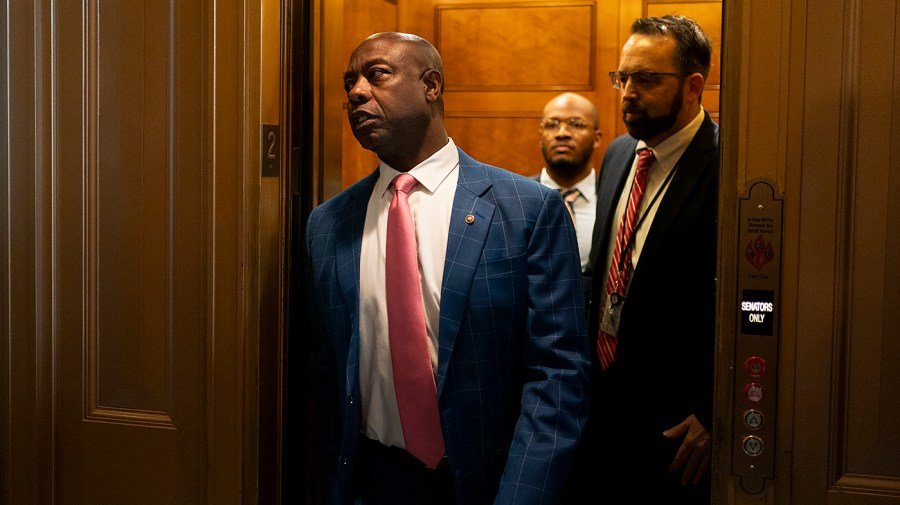
Senate Republicans are seeking to cut off a key funding source for the Consumer Financial Protection Bureau (CFPB) as part of a mammoth package to advance President Trump’s tax agenda and spending cuts.
Republicans on the Senate Banking Committee said the legislative text unveiled Friday would block CFPB’s ability “to fund itself” by significantly limiting its funding structure.
Currently, as part of its funding structure, the CFPB receives transfers from the central bank not exceeding a cap set at 12 percent of the Federal Reserve System’s total operating expenses in 2009.
However, the proposal offered by Senate Republicans on Friday would reduce that cap to zero. The measure goes further than the House version of Trump’s “big beautiful bill,” which seeks to reduce the cap to five percent.
The GOP-led Senate committee said Friday that the move would not “affect the Bureau’s existing ability to request funds from Congress” and would result in about $6.4 billion in savings over 10 years.
The CFPB has long faced legal challenges over its funding structure, as Republicans have pushed for the agency to be funded through the annual appropriations process in Congress that many other federal agencies are subject to instead of the Federal Reserve.
Some Republicans have said they see the broader tax and spending cuts plan as their best shot to rein in an agency they’ve argued has too much power and independence. The recent text has drawn swift backlash from Democrats on the banking committee, however.
Sen. Elizabeth Warren (Mass.), top Democrat on the committee, attacked the Republican proposal in statement on Friday afternoon, saying it “goes beyond the already extreme House bill and is yet another example of Republicans’ reckless and bloodthirsty pursuit of destroying the CFPB — an agency that has returned over $21 billion to scammed Americans — by any means necessary, after failing to get their way in court.”
Another section of the legislation calls for moving “non-monetary policy related Federal Reserve employees to a new pay scale calculated at 70 percent of the pay of the Federal Deposit Insurance Corporation,” Republicans outline in a breakdown of the measure.
Republicans say the employees’ salaries would be adjusted “to approximately the same as employees at the Department of the Treasury” as part of a measure the committee estimates would generate “savings of $1.4 billion.”
Republicans say the move would bring “parity to the pay scale of the Federal Reserve and the Treasury Department.” However, Democratic members of the banking committee accused their GOP colleagues of punishing Fed staff and undermining their ability “to police” big banks.
Other proposals sought by the committee include measures to yank back funding for the Department of Housing and Urban Development’s Green and Resilient Retrofit Program authorized under the Biden administration, eliminate what Republicans say is the Treasury Department’s “duplicative office” of Office of Financial Research, and transferring duties and functions of the Public Company Accounting Oversight Board (PCAOB) to the Securities and Exchange Commission. The language is similar to recent legislation that passed the House.
The measure also seeks to provide $1 billion for the Defense Production Act fund.
Overall, Republicans on the committee estimated the “net budgetary impacts” of the legislation to “result in a 10-year budgetary savings of $8.447 billion.”
Senate Banking Chairman Tim Scott (R-S.C.) said Friday that he worked with House and Senate colleagues to “carefully scrutinize programs and spending within our jurisdiction and identify efficiencies and cost savings.”
“This legislation takes important steps to reduce waste and duplication in financial regulation while bolstering our national security, and I look forward to advancing these provisions as part of the One Big Beautiful Bill,” he said.
Democrats, on the other hand, are vowing to fight the suite of proposals as what they have described as an “attack on American consumers.”
“Their bill also guts other regulators created after the 2008 crisis that help keep our financial system safe,” Warren said Friday. “This will not stand — and don’t just take it from me, take it from the litany of Senate Republicans who are on the record saying this violates Senate rules.”


